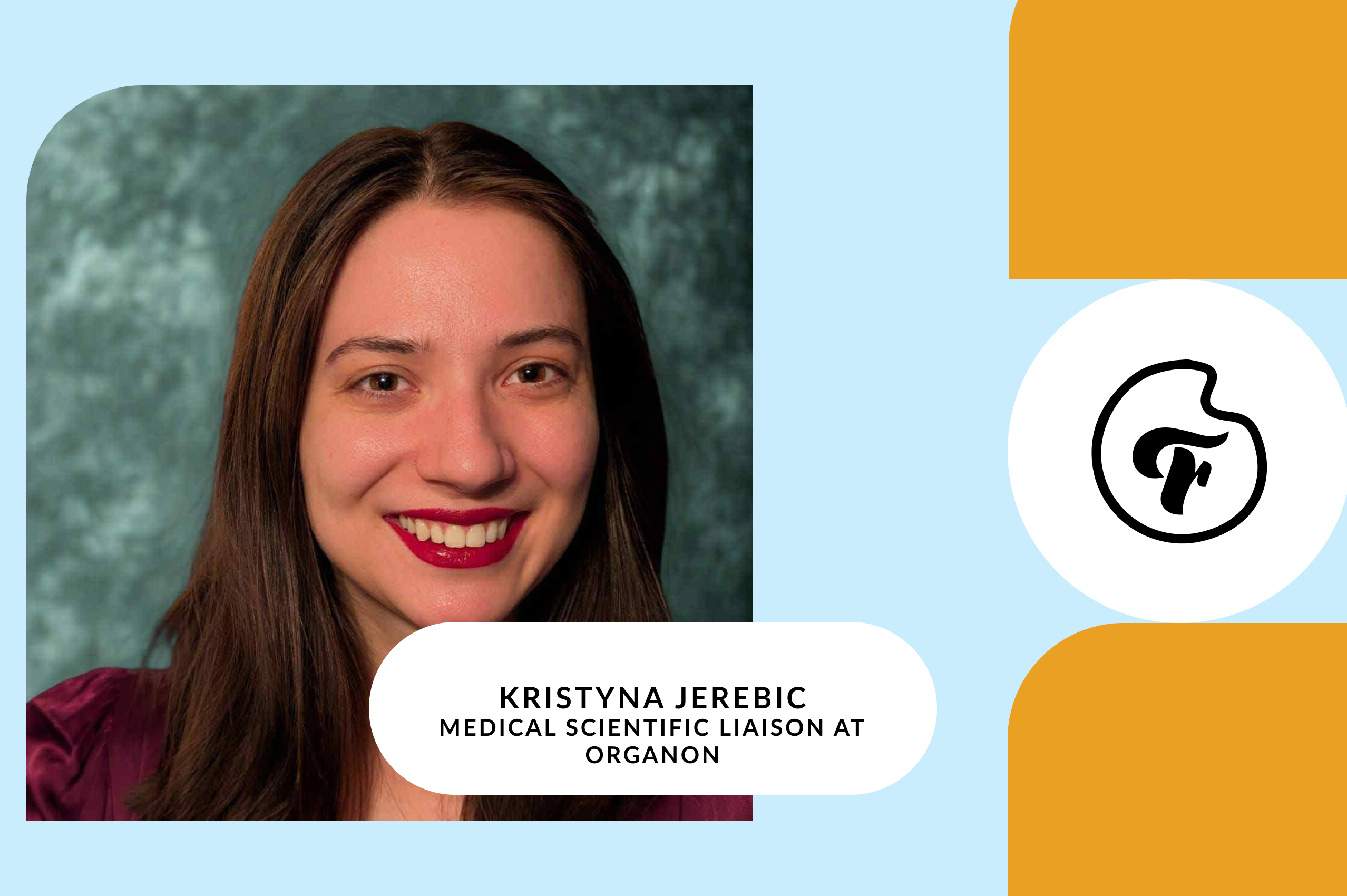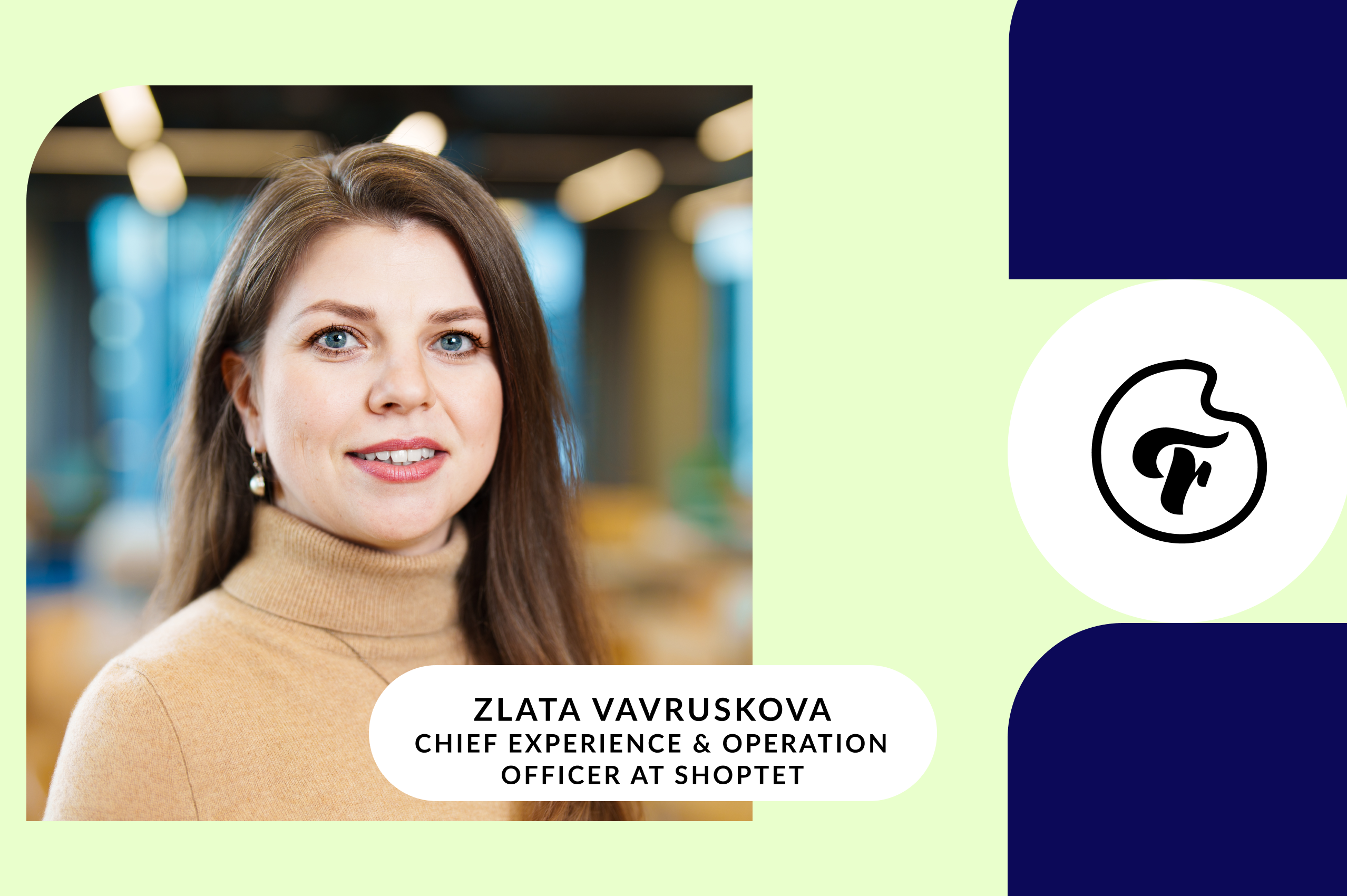
Anaïs Neumann is Global Head of Executive Recruiting at HelloFresh, as well as a career coach and a Femme Palette mentor who also delivered a brilliant talk on personal branding at our first-ever career conference held in Berlin. In this interview, we talked to Anaïs not only about her recruiting background and career path, but also insider tips, her coaching approach, personal branding advice, and more.
My name is Anaïs (pronounced ah-nah-ees) and I’m a French passport holder, now living in Germany with my Israeli husband and our two dogs. I have over 12 years of experience recruiting across European, North American and Middle Eastern markets for major consumer brands such as Amazon and Facebook. In my current role, I am leading the Global Executive Talent Acquisition Team at HelloFresh. I am very passionate about recruiting and about helping others succeed in the corporate world — which is why on top of my day job, I have also been working as a freelance mentor and career coach for a number of years now under my alias: The Curious Recruiter.
As much as I would like to claim that recruiting was a calling that came to me in a dream, the truth is that I got into this field by chance! Looking to complete my Master’s Degree in Business Administration, I landed an internship with a recruitment agency in Luxembourg, which turned into a job offer after I graduated. Three years later, one of the clients I worked with offered me to join them as an in-house Executive Recruiter. That client was Amazon, where I ended up working for over 5 years. With Amazon, I also took a “personal leap” by relocating to Israel and simultaneously pivoting into specialized Tech Recruiting. After my first year there, I joined Facebook Tel Aviv, where I continued to work across several recruiting domains. Due to my expiring Work-Visa, I had to relocate back to Europe towards the rear-end of the pandemic in 2021. That’s also when I decided to make a drastic move from big corporate to start-up: during my two years at Pitch, a Berlin-based company, I gained exposure to a broader range of topics across Recruiting and Employee Experience. In January 2023, I came back to my recruiting origins, when I joined HelloFresh to lead their Executive Talent Acquisition efforts globally.
It’s a long story, but all of it is driven by my motivation to never stop broadening my horizons, and to become a multi-faceted recruiting professional, as opposed to a niche specialist.
While I mentor and coach a number of Talent Acquisition professionals on the ins and outs of the job, my background as a recruiter also lends itself well to coaching individuals on putting their best foot forward during their job search, nailing the interview process — and negotiating the right salary!
But my superpower is helping individuals across different domains and levels of seniority with their professional growth, e.g. career development, self-advocacy, overcoming impostor syndrome, developing your personal brand, and honing in on your leadership skills. My experience navigating both big corporate environments and budding start-ups has taught me a lot about positioning your value, increasing the visibility of your work, and gaining exposure to those key “decision makers” that will make or break your careers.
People tend to forget that your personal brand is the way people remember you from your interactions with them. How do they remember you when you leave a (virtual) room? What peculiar trait or skillset do they recall of you? What one word would they use to describe you?
There are no impressions as crucial as the ones you leave with your 1st degree connections. And no, I’m not referring to your connections circle on LinkedIn, but to the people you interact with daily “in real life”, such as your colleagues, stakeholders, and customers. What really matters is your attitude: the way you interact with others, your consistency and reliability, as well as — to some extent — the quality of your work. This is what builds your brand’s legacy.
And to make your brand successful, you need to expand your audience! I see many people making the mistake of remaining relying on their direct manager or direct stakeholders for recognition, exposure and also promotions. But this is often not enough. You need to reach beyond your day-to-day connections: engage in wider cross-functional projects at work, take on more high-visibility projects, offer your niche expertise to other teams and/or start mentoring. Your aim is to be remembered by as many “influential” people as possible. Once you have these “branding basics” down, nothing should stand in the way of your LinkedIn branding, because you already will have established a strong reputation with people that can vouch for you.
My “secret tip” is to learn how to conduct state-of-the-art behavioural interviews before learning how to nail the candidate side of things. Why? Because a good interviewer should be looking for tangible examples demonstrating that you are good at something, and they will expect you to tell the whole story, from the initial situation, to what you did, to the quantifiable impact you had. But most interviewers don’t know how to ask the right questions. So it’s often the candidate’s job to position themselves in the best light, and to make the most out of bad surface-level questions such as “Tell me about yourself”. Once you know what an interviewer wants to hear, you can navigate any questions with ease. And the main ingredient for each of your answers should always be a specific example, told as a story: with all the twists, all the complications and all the outcomes.
As a career coach, a big part of what I do consists in helping coachees re-frame and position their experiences with more self-confidence and positivity. This means unlearning our habit of being “politely humble”. This habit often leads female or underrepresented job applicants to downplay or even forget some of their personal achievements. On their CV, but also in the course of their interview process, it’s extremely difficult for them to speak about “successes” confidently. Because in their mind, they were “just doing their job”. And instead, female applicants tend to overindex on their (perceived) shortcomings. This often becomes a self-fulfilling prophecy: it leads applicants to self-select out of a process, or to not even enter it in the first place.
Of course, it’s important to look for a company with an exciting mission, competitive benefits and an inclusive, flexible working environment. However, all of this doesn’t matter when you don’t have a direct manager who is committed to supporting you — or a collaborative team. Some of my most impactful career moments happened while I reported to managers who really believed in me, and while working with colleagues who supported me. On the other hand, I’ve made plenty of “strategic” career moves just to get away from unsupportive managers and teams. So, my advice would be to not just look for the right job or the right company, but also to look for the right people to work with. I strongly encourage every candidate to ask their recruiter and/or hiring manager to arrange an informal coffee chat with the extended team during the offer negotiation stage — or even before! If this is already part of the process, that’s usually a good sign.


